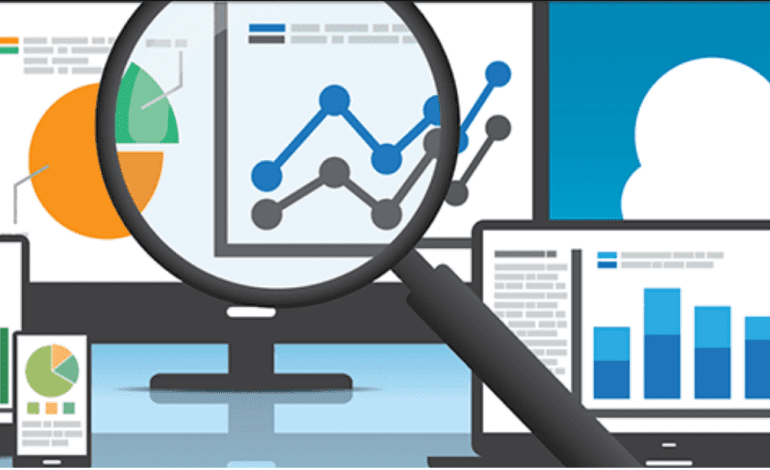Finding parking places might be challenging in the fast-paced world of today. However, with the development of technology, parking applications have emerged as a practical option for motorists looking for open parking spaces. This thorough guide will help you through the necessary procedures, important features, and financial considerations if you’re considering developing a parking app.
Introduction
Car Parking App development have revolutionized how drivers find and book parking places. These apps give drivers and parking spot providers a seamless experience using real-time data and user-friendly interfaces. For a parking app to be useful and successful, thorough planning and execution are necessary.
Understanding the Need for a Parking App
Parking in urban locations can be difficult due to a lack of space and high demand. These problems are addressed by parking apps, which give users a quick and easy way to find, reserve, and pay for parking spots. It enhances time efficiency, lowers stress levels, and maximizes parking effectiveness.
Types Of Apps For Parking
- Parking Locator Apps: These apps help users find available parking spaces nearby. They provide real-time information about parking availability, rates, and directions to the nearest parking spots.
- Reservation Apps: Reservation apps allow users to book and reserve parking spaces in advance. Users can select the desired parking date, time, and duration, ensuring a guaranteed spot when they arrive.
- Payment Apps: Payment apps streamline the payment process for parking. They allow users to pay parking fees directly through the app, eliminating the need for cash or physical payment methods.
- Navigation Apps With Parking Integration: Navigation apps that integrate parking features provide users with turn-by-turn directions to parking facilities. These apps help users find the most convenient parking spots near their destination.
- Parking Management Apps: These apps are designed for parking lot owners or managers. They offer features to manage and monitor parking spaces, including occupancy tracking, reservation management, and revenue tracking.
- Parking Space Sharing Apps: These apps connect people with available parking spaces with those needing parking. Users can rent out unused parking spaces to others, providing an alternative parking solution and earning extra income.
- Smart Parking Apps: Smart parking apps leverage sensors and IoT devices to provide real-time data on parking space availability. They guide users to available parking spots, optimizing parking efficiency and reducing congestion.
- Parking Guidance Apps: These apps provide users with guidance and information about parking facilities, including rates, hours of operation, and amenities. They help users decide where to park based on their specific needs.
- Parking Enforcement Apps: Parking enforcement apps are used by parking authorities or enforcement officers to monitor and manage parking violations. They streamline issuing parking tickets, tracking violations, and managing parking enforcement operations.
- Parking Rewards Apps: These apps incentivize users to park in specific locations by offering rewards or loyalty programs. Users can accumulate points or receive discounts for frequent parking or using designated parking facilities.
Key Features of a Parking App
Let’s talk about the characteristics your parking app has to include. It is important to remember that there should be two versions of the parking app: one for users and one for parking owners. We’ll discuss both possibilities and give details on them.
Features for User Panel:
- Registration and User Profile: Users can create an account and set up their profile within the app, providing personal information and preferences.
- Search and Reserve: Users can search for available parking spaces based on location, date, and time and make reservations for a desired duration.
- Real-time Parking Space Availability: The app displays real-time information on parking space availability, indicating the number of vacant spots and their respective rates.
- Navigation and Directions: The app integrates with navigation services to guide users to their reserved parking spots using optimal routes.
- Booking Management: Users can manage their parking reservations, view upcoming and past bookings, and make necessary changes or cancellations.
- Payment Integration: Secure payment options are available within the app, allowing users to make payments for parking reservations using various methods such as credit cards or mobile wallets.
- User Reviews and Ratings: Users can leave reviews and ratings for parking spaces they have used, helping others make informed decisions.
- Push Notifications: Users receive notifications regarding their parking reservations, including reminders, updates on availability, and promotional offers.
- Parking History: The app maintains a history of users’ parking activities, providing a record of past reservations, dates, times, and payment details.
- Customer Support: Users can access customer support directly through the app for assistance or to report any issues.
Features for Parking Owners:
- Parking Space Management: Parking owners can manage their parking spaces, including updating rates, availability, and other relevant details.
- Reservation Management: Parking owners have access to a dashboard where they can view and manage incoming reservations, track occupancy, and handle booking modifications.
- Occupancy Tracking: The app provides real-time occupancy information, allowing parking owners to monitor the availability of their spaces.
- Revenue Tracking: Parking owners can track and analyze their revenue generated through the app, gaining insights into usage patterns and trends.
- Analytics and Reports: The app provides parking owners with analytics and reports, offering valuable data on booking trends, customer preferences, and revenue generation.
- Communication with Users: Parking owners can communicate through the app, addressing queries, providing instructions, or offering personalized promotions.
- Maintenance and Updates: Parking owners can update information about their parking facilities, including any maintenance or closures, to ensure accurate and up-to-date data for users.
- Integration with Payment Gateways: The app integrates with payment gateways, allowing parking owners to receive secure payments from users directly.
Steps to Build a Parking App
Car parking app development involves several essential steps. Here’s an overview of the process:
Step 1: Define your target audience and goals
Identify your target audiences, such as daily commuters, tourists, or event-goers. Determine the primary goals of your app, whether it’s providing convenience, reducing parking congestion, or generating revenue through partnerships.
Step 2: Conduct market research
Analyze the existing parking app market to identify competitors, understand user expectations, and discover potential gaps or opportunities.
Step 3: Plan the app’s functionality and user interface
Create a detailed plan for your app’s features, user flow, and interface design. Consider the essential features mentioned earlier and prioritize them based on user needs and market research.
Step 4: Choose the development approach
Decide whether to build a native app for a specific platform (iOS or Android) or develop a cross-platform app that works on multiple platforms simultaneously.
Step 5: Develop the app’s backend and frontend
Collaborate with a skilled development team to build the backend infrastructure, APIs, and databases required for your app. Simultaneously, focus on developing a user-friendly frontend interface.
Step 6: Implement necessary integrations and APIs
Integrate third-party services like payment gateways, mapping, navigation APIs, and real-time data providers to enhance your app’s functionality.
Step 7: Test and optimize the app
Thoroughly test your app to ensure a smooth user experience, eliminate bugs, and optimize performance. Gather feedback from beta testers and make necessary improvements.
Step 8: Launch and market the app
Publish your app on the chosen app stores and implement marketing strategies to promote its availability. Utilize social media, online advertising, and partnerships to reach your target audience.
Cost Considerations for Parking App Development
The cost of Car parking app development can vary depending on various factors. Here are the key cost considerations:
Development team and resources
Hiring a development team with experience in app development, backend infrastructure, front-end design, and quality assurance is essential. The cost may vary based on their expertise and location.
App design and user interface
Investing in an intuitive and visually appealing user interface design contributes to the overall cost. Consider hiring a professional UI/UX designer to create a visually engaging app.
Backend development
The complexity of the backend infrastructure, database management, and integration with external services can impact the development cost.
Third-party integrations
Integrating third-party services like payment gateways, mapping APIs, and real-time data providers may involve additional costs, including licensing and API usage charges.
Maintenance and updates
Factoring in the ongoing maintenance, bug fixes, feature updates, and server costs is crucial for the long-term success of your parking app.
Conclusion
Car parking app development can provide a valuable solution to drivers’ parking challenges. By incorporating essential features, following the development steps, and considering the cost factors, you can create a successful parking app that enhances the parking experience for users.


